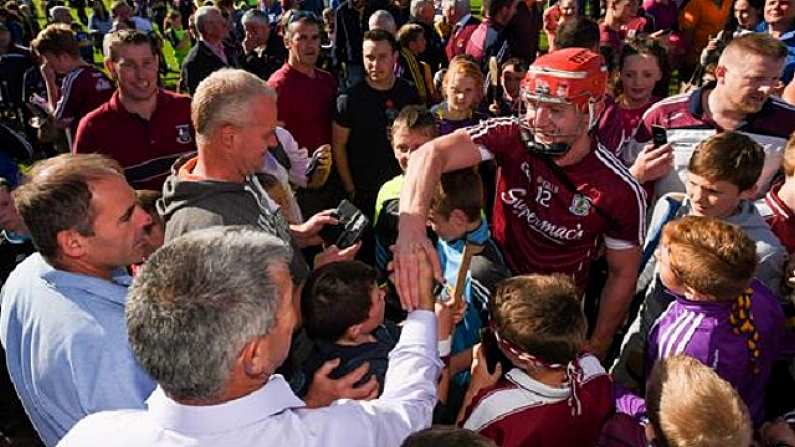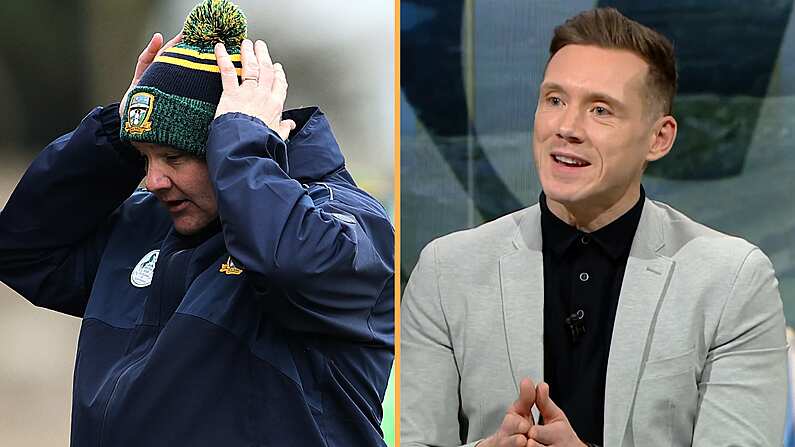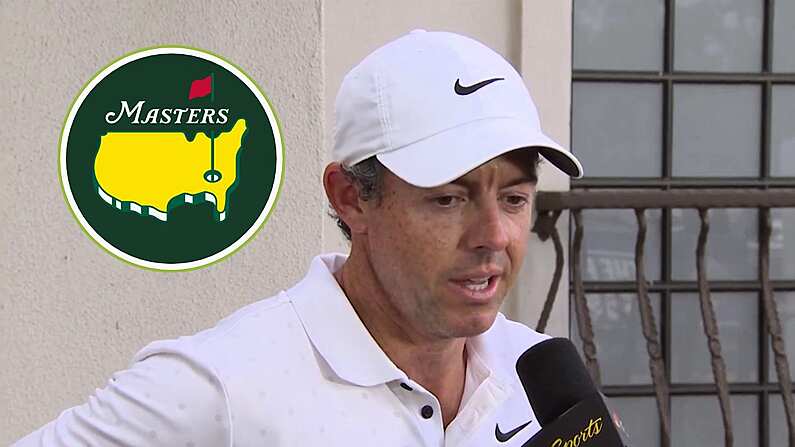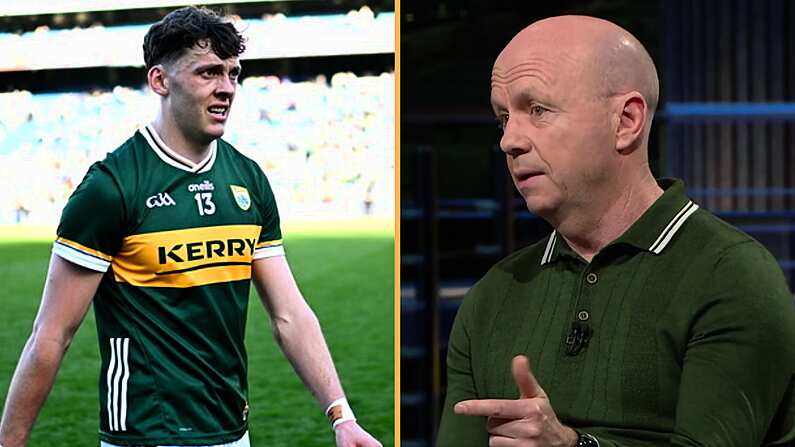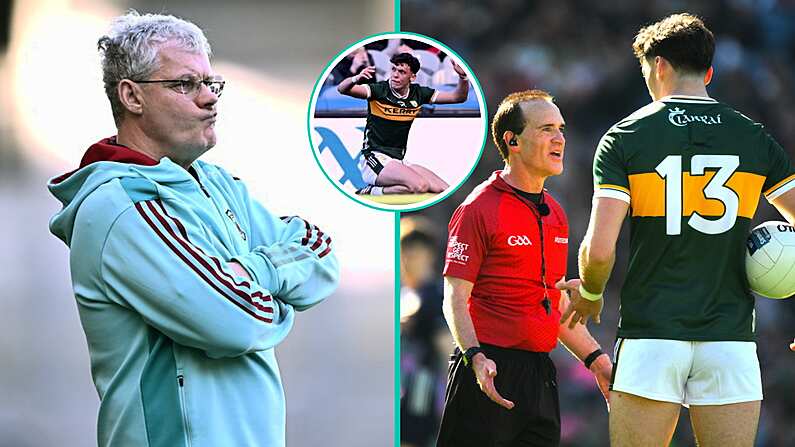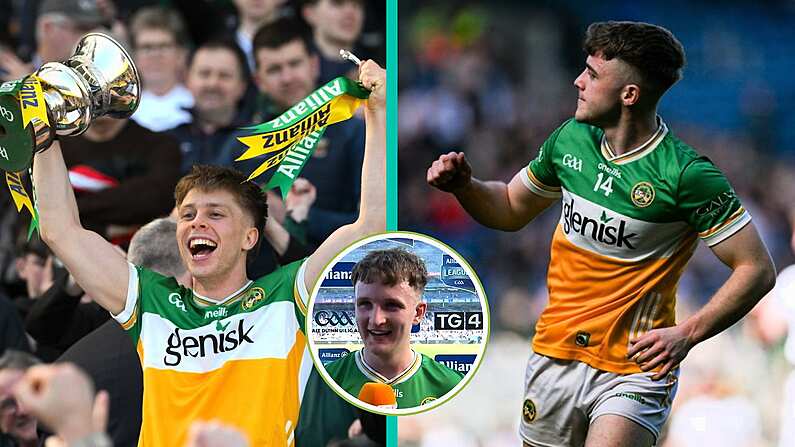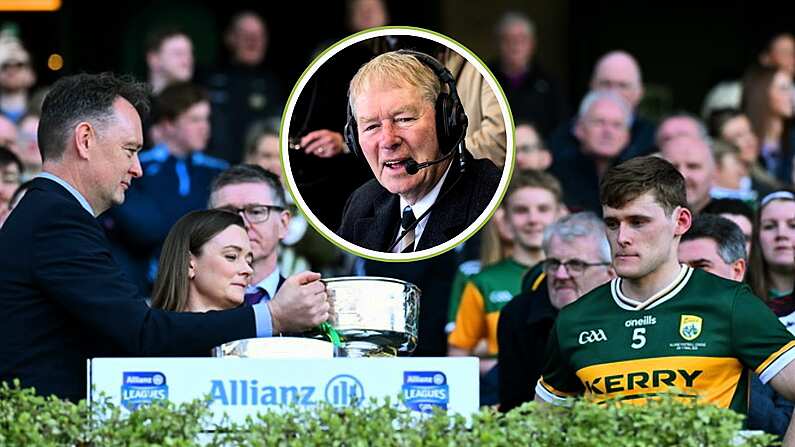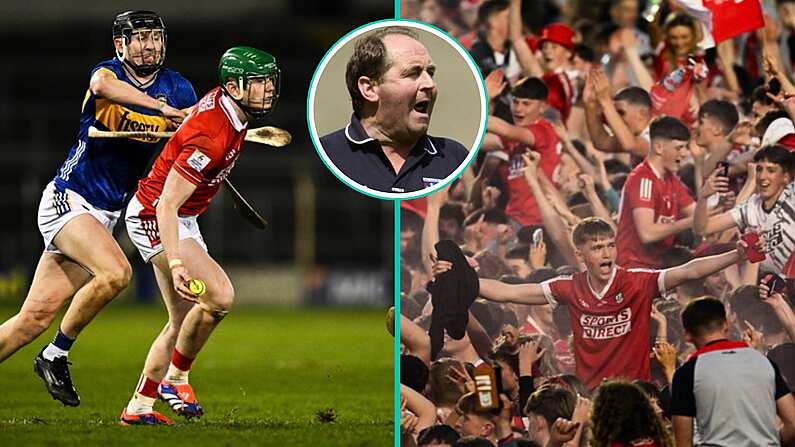Since professional sport began, it has mirrored the ruthless, rat-race nature of life itself. Win at all costs. Money and power are more important than the integrity of the sport or the joy of playing it. On Sunday, Galway's Joe Canning, in his post-match interview with RTE's Marty Morrissey, reminded us all of gaelic games' rightful place: outside the rat race.
"There are more important things in life than sport" - Joe Canninghttps://t.co/mmTFkdo0gt
— RTÉ GAA (@RTEgaa) July 24, 2016
Canning's comments have been widely praised in the media, and I can already predict the initial reaction to bringing them up again. Variations on the following, perhaps:
The lad said it and fair play to him, but will ye quit over-analysing it, for God's sake!
But hear me out.
Conor McGregor refers to his sport as his "business". In a recent Balls.ie interview, Michael Conlan stated that his aim in boxing after the Olympics was to become "very wealthy". Anyone who has watched Team Sky effectively buy the Tour de France this summer (their 2015 wage bill, £18 million, was bigger than the entire budget for most World Tour teams) will also have recognised that Ian Stannard, Geraint Thomas and Luke Rowe weren't helping Christopher Froome win the race because he's a nice guy, or due to some sense of British pride. They are all receiving tasty sums of money to ride their bikes under the 'Sky' banner.
In professional sport, you make what you can, while you can. As in business, defeat moves you closer to the trapdoor; a poor performance makes a sponsor less likely to foot your bills for the next year. And, as a result, paid sportspeople are often-understandably-unscrupulous in their pursuit of whatever will bring financial reward. For them, platitudes and well-crafted words are not sufficient. They have perhaps ten years-if lucky-to squeeze what they can (of monetary value) out of their sport before they retire and have to start all over again, normally in a completely different line of work (obviously there are exceptions).
Not that so-called 'amateur' sport is free from the fingerprints of professionalism, a point Paul Kimmage made earlier this month when describing his own attitude to competing in the Olympics in 1984.
...the truth, the unspeakable truth, is that it had nothing to do with Olympian spirit, and little to do with Ireland. I was doing it for myself. I had just turned 22 that summer and had spent the months prior to the Games trying to secure a professional contract with a team in Paris. The Olympics were just a stepping stone at the time, a box to be ticked...
Olympic boxer Paddy Barnes echoes Kimmage's point. Whilst it is undoubtedly a huge source of pride for Barnes to compete in the green of Ireland, the Belfast native told the Irish Daily Star's Kieran Cunningham earlier this year that "the biggest pressure in London (2012) was having to medal to keep funding".
One of the reasons the European Championships in France were so refreshing is that they offered a break from the money-dominated world of professional football. But one would be naive to believe that players didn't have a keen eye on the fact that the tournament offered them a rare chance to step into the international shop window. Two players from this island, Northern Ireland's Michael McGovern and the Republic's Jeff Hendrick, stand out as players whose value sky-rocketed due to their outstanding performances for their countries.
And so we come back to the GAA, and Joe Canning. Inter-county GAA players undoubtedly enjoy occasional perks, whether it is a role as an 'AIB GAA' ambassador, a summer camp coaching job, or sponsorship opportunities. But a player scoring a winning point in Croke Park or Thurles will not lead to a new contract. When Bernard Brogan describes practising twice or three times a week by himself on a training pitch, he is not picturing an increased wage or a dotted line to be signed on a fresh deal. He is driven by the feeling of escaping from the stresses of life and work wearing the blue of Dublin and the pure, untainted glory of winning an All-Ireland.
Yes, that may benefit him off the pitch. And yes, Chris Froome is probably not thinking of money when he pushes himself through training camps in the mountains of France or Spain in the cold of winter. Froome, too, is picturing glory, and wearing the yellow jersey awarded to the winner of the most beautiful and challenging sporting event in the world. But all of Brogan's team-mates and competitors are driven by the same purity of motivation as he is, in a sport that remains, even at the highest level, truly amateur-or at least as close to it as is possible nowadays.
The same cannot be said of the world in which Froome exists.
And with his admirable words on Sunday, Joe Canning reminded us all that, whilst we take our national games awfully seriously, and use words like "devastating" and "heart-breaking" to describe a loss, the GAA, and gaelic games in general, are and should remain a welcome escape from what we and professional sportspeople spend most of our working lives doing.
Fighting for survival.

